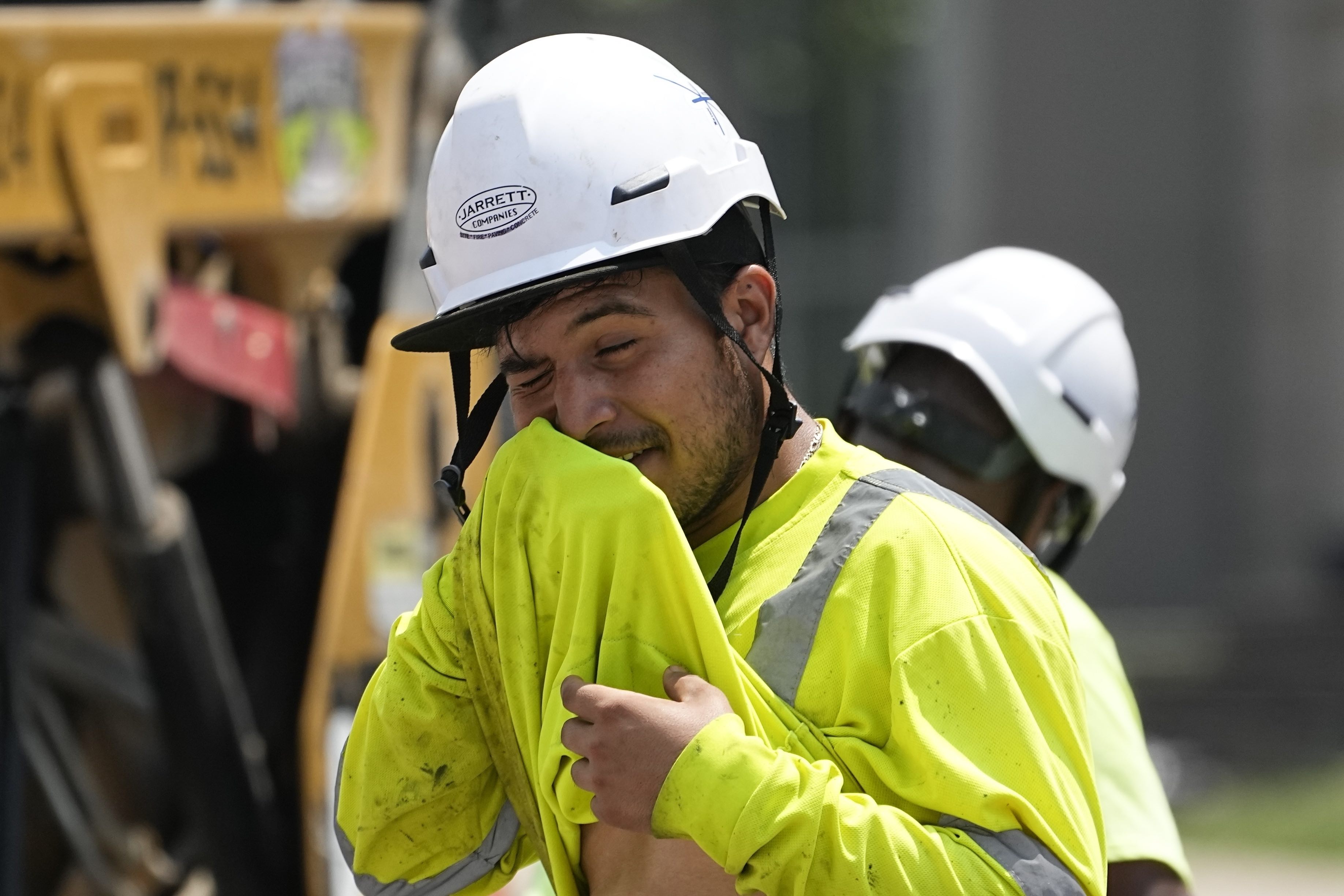Dominic Gibb remembers the sting of sweat dripping into his eyes underneath his face shield in summer 2022.
It was a hot year, and hotter still in the machine shop where Gibb made woodworking equipment. There was neither an air conditioner nor a thermometer; Gibb said he could only describe the heat as “sweltering.” They began starting their shifts at 4 a.m. to avoid the mid-day inferno.
“When I got off work it was a struggle to drive home,” Gibb said. “You’re just so exhausted.”
Gibb is among workers across British Columbia dealing with the new reality of working on a warming planet.
Cooks, construction workers and farmhands are toiling in temperatures their parents never experienced, leading to a surge in heat-related injuries and calls for stronger protections for workers.
British Columbia already has laws letting workers refuse unsafe tasks, which includes working in dangerous heat. But advocates say that workers often fear reprisal for refusing such work and believe existing guidelines are seldom enforced.
“No worker should be asked to work in 40- or 50-degree heat,” said Jen Kostuchuk, the climate and labour project co-ordinator with the Worker Solidarity Network. “It’s not sustainable.”
In 2021, WorkSafeBC approved a record 115 claims for heat stress from workers injured on the job. That was the year a heat dome brought the temperatures in some parts of the province above 40 C.
The next year, in 2022, WorkSafeBC approved 81 heat stress claims — its second-highest total ever.
The compensation board does not yet have data from this year, which has seen intense heat and a record fire season that has blanked much of the province in smoke.
Kostuchuk says that has a direct effect on workers. Earlier this year the Worker Solidarity Network — which advocates for workers in precarious, non-union jobs — issued a report examining the effect of extreme heat on workers in the food service industry.
Kostuchuk said the 31 workers interviewed for that report often reported being unable to take breaks during extreme heat events. Some reported spending extended time in walk-in fridges or freezers to cool down.
“We were hearing from cooks that were standing in upwards of 40-degree heat during the 2021 heat dome, and we’re seeing and hearing similar stories going on right now,” she said.
In theory, workers in B.C. have a right to guaranteed breaks and can refuse any job that’s unsafe. But in practice, Kostuchuk says the small sample of workers the network spoke to said they either didn’t know about those rights or weren’t comfortable confronting their employer. A total of 88 per cent of the survey’s respondents, for example, said they would not feel comfortable refusing unsafe work.
Other employees have even fewer options. Raul Gatica is the executive director of Dignidad Migrante, a non-profit organization supporting the more than 14,000 migrant farm workers who come to B.C. each year.
This year, Gatica said many workers have complained about being forced to work in the fields without eye and mouth protection from the wildfire smoke blanketing the countryside.
Gatica said some employers have stepped in with masks. One even bought an air conditioning unit, Gatica said, so workers could take a break from the sweltering heat. But he says that others are suffering without access to regular breaks.
The workers Gatica supports come to Canada under the federal temporary foreign worker program, meaning they are assigned to an employer and cannot freely switch jobs. Gatica says that means they are unlikely to complain, out of a concern they might not be invited back to work on the farm the following year.
Kostuchuk’s group has called on the B.C. government to pass new laws explicitly requiring a “maximum temperature policy” for different businesses.
Ontario is currently mulling new regulations specifically around heat stress. But Kostuchuk argues that workers would also benefit from rules guaranteeing them more breaks during extreme weather events, or even emergency paid time off when they cannot make it to work due to a weather disaster.
In the meantime, she says the government should do a better job of enforcing the rules that do exist, and workers should be aware of their rights.
“Workers know exactly what they need to feel safe,” she said.
Some employers say they’ve been proactive in protecting workers when the mercury gets too high.
Peter Mihalech is the operations manager for B&B Contracting Group, which employs about 550 staff working on roads, pipeworks and concrete in the Lower Mainland.
Mihalech said his business has started a policy of giving “micro-breaks” to employees during heat events — something he said has become increasingly necessary in the past five years.
“If a worker is in the sun for the hour, we tell them to go in the truck, fire up the AC,” Mihalech said. His company even shut down its operations in 2021.
All of that, Mihalech said, can make projects more expensive. But he said worker safety has to be a priority in construction given the physical nature of the job and the exposure to the elements.
“We need to make sure the workforce exercises their rights to refuse unsafe work,” Mihalech said. ![]()
Read more: Rights + Justice, Labour + Industry

















Tyee Commenting Guidelines
Comments that violate guidelines risk being deleted, and violations may result in a temporary or permanent user ban. Maintain the spirit of good conversation to stay in the discussion and be patient with moderators. Comments are reviewed regularly but not in real time.
Do:
Do not: